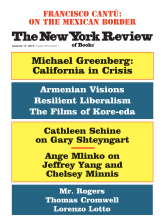Those Poor Clares must wonder why the racket
louder than usual, three-euros-a-pop
tourists queuing up outside,
weekends the convent on pause.
It’s the noise in their heads, the old nun
might say with what’s left
in her head, the girlhood part: war,
a low-flying plane, the loud hoarse agony
of cows shattered from above into petal by
red petal, garish sprays in grass
north of these olive groves.
(Museum of Silence as secret or
scent, day of misjudgment,
Italy, the baffling website, our
stop-start train to Fara Sabina.)
Quiet is what’s after, the old nun
tells the young nun who has
an edge, that eye thing, she has a look.
This too I invent: Is it vanity or just
an old woman in wonder, going on
so vividly the long ago boy in that cockpit
can’t even have a thought, he’s so scared.
And the younger nun: So now it’s
forgive us their trespasses?
Not out loud. In her head. Belief can narrow
for good like that. What’s left is
a lever, a simple jack of amazement to
pry open the very first museum on earth,
a sanctuary for the muses.
Of course. From the Greek mουσεῖον,
and part cemetery. Latin’s closer,
mūsēum, its small banquet room to keep
the dead living, a spot for reverent
frolic and grief. The Ancients
mourn, loving the lost off to their
out-of-body nowhere or somewhere,
eating with them one last time.
The original church basement lunch
after the funeral, I suppose.
And those ladies who
toil for us among the fruit salad, ham spread,
the muted voices—
O long-robed muses of oldest days
(for poetry lyric and epic and sacred,
for Music, History, Dance, et al.), come hither!
Even you, wordless stricken one
called Tragedy, the start over,
dark forever thus
in such places, that bright
moth bitten-blind ring of leaves you wear.



